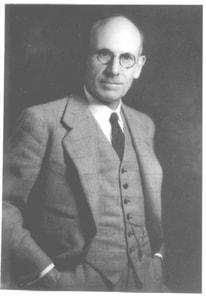Lawrence Henry Gipson was an American historian, who won the 1950 Bancroft Prize and the 1962 Pulitzer Prize for History for volumes of his magnum opus, the fifteen-volume history of The British Empire Before the American Revolution, published 1936–70. He was a leader of the "Imperial school" of historians who studied the British Empire from the perspective of London, and generally praised the administrative efficiency and political fairness of the Empire.

Career at Lehigh
In 1924, Gipson was appointed professor of history at Lehigh University, a position he held until his death. Gipson's magnum opus was the fifteen-volume series The British Empire Before the American Revolution (15 vols., 1936–70) - the first three volumes were published by The Caxton Printers in Caldwell, Idaho, and the remaining volumes were published by Alfred A. Knopf in New York. Gipson spent decades on the project, completing the final volume only shortly before his death. Three of the volumes were given significant historical prizes:
- The Great War for the Empire: The Years of Defeat, 1754-1757 (volume 6): The 1948 Columbia University Loubat Prize
- The Great War for the Empire: The Victorious Years, 1758-1760 (volume 7): The 1950 Bancroft Prize of the American Historical Association
- The Triumphant Empire: Thunderclouds Gather in the West, 1763-1766 (volume 10): The 1962 Pulitzer Prize in History
Gipson believed that the American Revolution was a direct result of changes that occurred in the British Empire after 1763, due to Britain's victory in the French and Indian War/Seven Years' War, which he referred to as "The Great War for the Empire." His thesis is succinctly presented in his article "The American Revolution as an Aftermath of the Great War for the Empire, 1754-1763," which was published in the March 1950 issue of Political Science Quarterly. He paid tribute to his mentor in "Charles McLean Andrews and the Re-orientation of the Study of American Colonial History," which appeared in the July 1935 issue of the Pennsylvania Magazine of History and Biography.
One of Gipson's last publications was the introduction to a 1969 Festschrift for Ross J. S. Hoffman, who was a history professor at Fordham University. Gipson noted that he himself was a member of the Congregational Church and a descendant of the pilgrim William Brewster, while Hoffman was a convert to Roman Catholicism and a staunch defender of that faith - and yet they were good friends.
Legacy
Gipson left a generous bequest to establish a research institute dedicated to the study of the eighteenth century, which provided the core funding for the current endowment. For more than fifty years the institute has carried on Gipson’s legacy of interdisciplinary research, teaching and graduate mentoring, and promotion of eighteenth century studies both nationally and in the local community.
